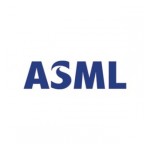ASML
Introduction
ASML brings together the most creative minds in science and technology to develop lithography machines that are key to producing faster, cheaper, more energy-efficient microchips. We design, develop, integrate, market and service these advanced machines, which enable our customers to reduce the size and increase the functionality of their microchips, which in turn leads to smaller,
more powerful consumer electronics. We can only do so by using the real strength of ASML, the employee. We are proud of who we are, of our achievements, how we accomplish these achievements. Our staff includes some of the most creative thinkers in the world today; 44% of them possess a master’s degree, 33% a bachelor’s degree, including some 600 PhD’s.
Job Mission
The Sequence Engineer is responsible for the management, coordination, planning, preparation, supporting and validation the Build and Test Sequence on the shop floor according to the 6P model. The Sequence Engineer will provide the work preparation in form of a blueprint and material allocation that will be used in Veldhoven as well as at the customer site. The work prep can relate to assembling and testing of modules and machines in Veldhoven and at the customer site. The Sequence Engineer interfaces with Manufacturing Engineers, Production, Planning, Shop Floor Engineers and Project Leaders.
- Define opportunities to reduce cycle time
- Design, integrate and create an optimal build and test sequence
- Create machine specific sequences for production, based on system blueprint and organizational / customer preconditions.
- Align with our internal customer in the Factory in order to fulfill the factory’s requirements.
- Align with Manufacturing Engineers in order to get the correct input for an optimized sequence.
- Acting company-wide over all departments, from Sales to the shop floor.
- Verification of bill of materials and preparation for material Kits for the shop floor.
- General proficiency with tools, systems, integration, and procedures required to accomplish the job.
- Bachelor or Master level – preferable technical, industrial engineering (BS in Optical Engineering Electrical Engineering, Engineering Physics, Physics, Applied Physics, or Mechanical Engineering.)
- Knowledge and experiences in sensors, optics, and/or controls of such devices
preferred.
As an advantage, not a must:
- Experience in or affinity with the machine industry
- Experience in or affinity with either system testing and integration or configuration management is preferred.
- Experiences in semiconductor equipment development is a strong plus.
- Preferably multiple years working experience is an advantage, not a must.
- Experience in a production environment with high tech products and complex production processes is an advantage, not a must.
- Experience in the field of Technical Work Preparation is an advantage, not a must
- Organizational, flexible and capable to communicate on all levels.
- Able to defend own opinion
- Can work independently and as part of a team
- Proactive attitude
- Able to plan and prioritize
- High degree of autonomy
- Willingness to invest in personal development.
- Excellent written and verbal communication skills.
- Requires the ability to read and interpret engineering specifications, maintenance manuals and engineering sketches.
- Possesses good oral presentation skills and be able to effectively present results in a team meeting.
The Development & Engineering System Integration department (D&E SI) is responsible for
defining and driving the system integration of new products/options for full functional machine and performance qualification within time to market target. The D&E SI Manufacturing & Upgrades group within this department is managing all D&E work preparations for producing Twinscan machines. Including the responsibility for setting up and validating the manufacturing
blueprint (sequence) for proto and pilot execution from the ASSY work centers up to the installation at customer’s site, aimed to achieve the optimal cycle time.

